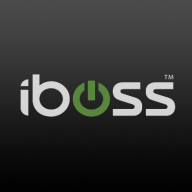


Cisco Umbrella and Cisco Secure Access both compete in the network security category. Cisco Umbrella appears to have the upper hand in environments needing robust DNS-layer protection and content filtering, while Cisco Secure Access excels in comprehensive access control and Zero Trust Network Access, offering more in-depth security management.
Features: Cisco Umbrella offers DNS-layer security, comprehensive web filtering, and malware threat prevention without requiring on-premise solutions, making it ideal for environments seeking content control. Cisco Secure Access provides advanced integration of access control and Zero Trust Network Access (ZTNA), enabling granular control over user access and robust application-layer security, which is beneficial for organizations needing extensive access logging and mobile security.
Room for Improvement: Cisco Umbrella could improve by enhancing integration with external threat feeds, supporting more internet protocols like IPv6, and offering detailed analytics and policy scheduling. Cisco Secure Access may improve its adaptive pricing strategies to accommodate diverse organizational sizes, offer smoother integration with third-party applications, and enhance user management for a better user experience.
Ease of Deployment and Customer Service: Both products are straightforward to deploy, with Cisco Umbrella noted for its quicker setup, crucial for organizations needing to quickly enhance their security. Cisco Secure Access offers more configuration options which may require more technical engagement. Both products are supported by strong customer service, although email response times for Cisco Secure Access could be faster for urgent cases.
Pricing and ROI: Cisco Umbrella offers various pricing tiers, which, though high compared to competitors, are justified by its security benefits. Organizations often see ROI through reduced security incidents. Cisco Secure Access, also considered a premium product, faces similar pricing challenges but offers significant ROI with enhanced access control and reduced hardware needs. Both solutions recommend evaluating costs against anticipated risk mitigation to justify investments.


| Company Size | Count |
|---|---|
| Small Business | 6 |
| Midsize Enterprise | 6 |
| Large Enterprise | 5 |
| Company Size | Count |
|---|---|
| Small Business | 7 |
| Midsize Enterprise | 1 |
| Large Enterprise | 10 |
| Company Size | Count |
|---|---|
| Small Business | 50 |
| Midsize Enterprise | 30 |
| Large Enterprise | 51 |
Iboss offers a comprehensive cloud-based security platform valued for its scalability and autonomous features, ensuring robust security with easy deployment and management capabilities.
Renowned for its robust security architecture, Iboss integrates seamlessly within diverse networks, delivering efficient granular filtering and advanced content categorization. Its single pane of glass console provides ease of management, allowing rapid scalability suitable for rapidly deploying environments. Operates in BYOD setups due to inline filtering without device installation. Integration with cloud-based applications enhances user control, and features like SASE, SSL inspection, and ChatGPT risk protection stand as highlights. Despite its strengths, users have pointed out areas for enhancement like direct navigation in reports, SSL decryption, and better cloud integration while having room to improve data loss prevention.
What are the most important features of Iboss?The usage of Iboss spans educational institutions, specifically K-12, to enforce internet policies, protect data, and support remote work environments. It provides web filtering and security frameworks to ensure safe browsing. Its platform-as-a-service model offers flexibility for both cloud-based and on-premises requirements, integrating seamlessly to deliver enhanced security features suitable for various deployment needs including zero trust, CASB, and network security for work-from-home setups.
Cisco Secure Access is a comprehensive Security Service Edge (SSE) solution (a key component of a SASE solution) that addresses the complexities of securing a hybrid enterprise. Cloud-delivered and grounded in zero trust, it delivers a unique blend of user simplicity and IT efficiency for frictionless, secure access to all applications—SaaS (with gen AI), private apps, and the internet—regardless of user location or device. Secure Access protects users, data, and devices against relentless, sophisticated, and constantly evolving threats including AI-driven attacks and identity breaches.
Provides all core SSE components (ZTNA, SWG, CASB, and FWaaS) plus extended capabilities.
Includes VPN-as-a-Service (VPNaaS), data loss prevention (DLP), AI Assistant, visibility/control/guardrails for generative AI use, digital experience monitoring (DEM), reserved IP, remote browser isolation (RBI), DNS-layer security, flexible security enforcement (in cloud or on-premises), policy verification, and more.
Protects users as they seamlessly access resources and apps with no extra steps needed, regardless of protocol, port, or level of customization
Simplifies IT operations through a single client, single dashboard, single license, and unified policies.
Lowers risk with least privilege, granular controls backed with unmatched threat intelligence of Cisco Talos.
Eases interoperability with other products from Cisco and third-party vendors with common administrative controls, data structures, and policy management.
Robust integrations
Integrates with Cisco Identity Intelligence to protect against the startling increase in identity-based attacks.
Integrates with many SAML Identity Providers (IDPs) such as AD, Azure AD, Okta, Ping, etc.
Integrates with Cisco offerings including SD-WAN, Splunk, XDR, Thousand Eyes, third party technologies such as Menlo RBI, Chrome Enterprise Browser, and AppOmni for SSPM.
Cisco Umbrella provides fast-deploying DNS-layer security with powerful threat protection capabilities. Trusted by over 30,000 entities, it ranks highly in DNS security and effectively supports secure remote work environments.
Cisco Umbrella offers comprehensive DNS security, web filtering, and ease of use, enhancing network security through robust threat protection and malware prevention. It processes over 600 billion requests daily, making it a leader in its field. The seamless integration with existing infrastructures and cloud-based nature makes it suitable for remote and distributed work environments, ensuring consistent security throughout. Management is streamlined with a single-pane interface that simplifies administration, while in-depth reporting capabilities provide valuable insights for continuous monitoring.
What are the key features of Cisco Umbrella?Cisco Umbrella is widely adopted in industries requiring advanced DNS-level security to counteract malware, phishing, and cyber threats. Its ability to monitor and protect remote and roaming employees makes it an attractive option for sectors highly dependent on cloud services. By managing DNS queries and blocking harmful sites, Cisco Umbrella enhances cybersecurity across networks, providing an added layer of protection for businesses worldwide.
We monitor all Domain Name System (DNS) Security reviews to prevent fraudulent reviews and keep review quality high. We do not post reviews by company employees or direct competitors. We validate each review for authenticity via cross-reference with LinkedIn, and personal follow-up with the reviewer when necessary.